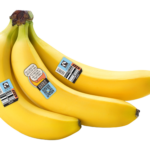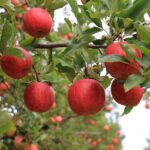Colombia: Turumba keeps it real with 100% natural fruit pulp

Bucaramanga-based Turumba may only represent 5% of Colombia's fruit pulp export industry, but without freezing the product and steering clear of pasteurization, the group aims to stake its place as a unique player and has been opening up new markets. 
What began as a small guanabana-growing operation two decades ago (for the uninitiated a guanabana is a gigantic cousin of the custard apple) has turned into a thriving business for Fruexcol, adding value through 100% fruit pulp with a portfolio that also includes yellow passion fruit, blackberries, lulo and pineapples.
"We started to see that to export we needed to bring added value to fresh fruit, so we started to develop fruit pulp that had different characteristics compared to the pulp that was already on the market," Fruexcol manager Janeth Rodríguez told www.freshfruitportal.com.
The result was Turumba, which Rodríguez promotes as a 'real' fruit pulp.
"Our pulp is not frozen or pasteurized, as we want the final consumer to receive pulp that is the most natural as possible," she said.
"To be able to arrive with a product of excellent quality we have to be very selective with the fruit we use. We can't use fruit in the late stages of ripening or that are in the fermentation stage - it has to be a grade A fruit to be chosen for our pulp.
"Additionally, it's a fruit that has a small addition of a preservative, but the most important thing is the cold chain."
Around 55% of the pulp produced is from the guanabana, given there are growers associated with Fruexcol, while other prodcuts include passion fruit (20%), blackberries (10%), lulo (10%) and pineapples (5%).
"It has been difficult to position ourselves in the overseas market because a lot of countries don't know our fruits, but we've benefited from the fact that in recent years we've had an increase in interest from customers as they are look for what's natural," Rodríguez said.
She said Fruexcol was producing around 60 metric tons (MT) of the product each month, with 65% exported to the U.S. and Canada, while the remainder is sold in the domestic market.
"We are in the process of opening up markets. We are analyzing countries in Europe, but they have recently modified the list of preservatives allowed so we'll have to modify our products. We are working on that with our professionals," she said, adding the expectation was to have product ready to go to the EU within the next six months.
The company is also developing new product lines using pulp from strawberries, mangoes and guavas.















































